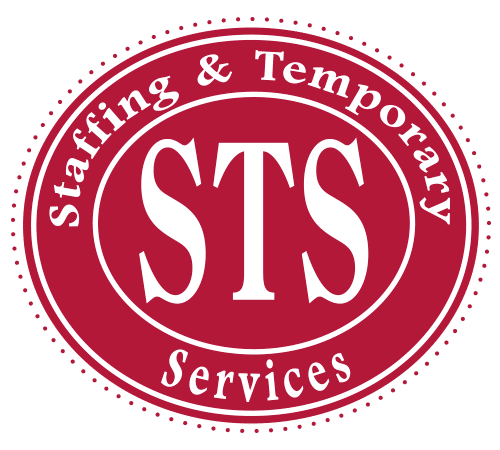Making mistakes at work is a common occurrence that can happen to anyone, regardless of their position or experience. While it may be tempting to panic or try to hide the mistake, it’s important to remember that mistakes are opportunities for growth and learning. From taking responsibility for your actions to seeking guidance and finding ways to prevent future errors, we will provide practical tips to help you navigate through the aftermath of a mistake. Additionally, we will shed light on the importance of maintaining open communication with your colleagues and superiors, as well as the significance of embracing a growth mindset that allows you to bounce back from setbacks and use them as stepping stones toward personal and professional development.
Oops! What Now?
Taking Responsibility and Learning from Mistakes
One of the most important steps to take when you make a mistake at work is to take responsibility for your actions. Acknowledging your mistake instead of trying to hide or deflect blame demonstrates integrity and professionalism. Admitting your error not only shows that you are accountable but also allows you to learn from the experience.
By taking responsibility, you are showing that you are committed to personal and professional growth. Reflect on what went wrong and analyze the root causes of the mistake. This introspection will help you identify areas for improvement and prevent similar errors in the future. For example, if you made a mistake in a sales presentation, you can evaluate the reasons behind it such as lack of preparation or poor communication skills. Learning from these mistakes will enable you to enhance your skillset and become a more effective professional.
Seek Guidance and Support
Making a mistake can be emotionally challenging, and it’s important not to face it alone. Seek guidance and support from mentors, colleagues, or supervisors who can provide valuable insights and advice. Reach out to those who have experience in dealing with similar situations or possess the expertise to guide you through the aftermath of your mistake.
By seeking guidance, you are leveraging the collective wisdom of others and gaining valuable perspectives. They might offer insights that you hadn’t considered or provide reassurance that mistakes happen to everyone. Moreover, having someone to lean on during difficult times can alleviate stress and help you navigate the process with more ease.
Preventing Future Errors
Once you have taken responsibility and received guidance, the next step is to implement strategies to prevent future errors. Analyze the circumstances surrounding your mistake and identify any patterns or areas where improvement is needed. This could involve seeking additional training, updating your skills, or establishing new processes to minimize the likelihood of similar mistakes occurring.
For example, if you made a mistake due to a lack of knowledge in a particular area, invest time and effort into expanding your knowledge base. Enroll in relevant courses, attend seminars or workshops, or seek out mentorship from subject matter experts. By proactively addressing your areas of weakness, you can prevent future mistakes and enhance your overall performance.
Open Communication and Collaboration
Maintaining open communication with your colleagues and superiors is vital when dealing with mistakes at work. Being transparent about your errors allows for trust to be built within the team and fosters a culture of accountability. When everyone feels comfortable admitting their mistakes, it creates an environment where problems can be addressed and resolved more efficiently.
Additionally, collaboration plays a crucial role in preventing and resolving mistakes. By working together, team members can bring different perspectives and insights to the table, which can lead to innovative solutions and preventative measures. Encourage open dialogue and brainstorming sessions to ensure that everyone’s expertise is utilized and that mistakes are minimized.
Embrace a Growth Mindset
Having a growth mindset means seeing mistakes and setbacks as opportunities for growth and improvement. Instead of dwelling on the negative aspects of a mistake, view it as a chance to learn, adapt, and develop new skills. Embracing a growth mindset allows you to bounce back from setbacks with resilience and determination.
For example, if you made a mistake in a project delivery, focus on what you can learn from the experience rather than fixating on the failure itself. Take the time to analyze what could have been done differently and explore ways to improve your future performance. This not only helps you grow as an individual but also demonstrates your capacity for self-improvement to your colleagues and superiors.
Don’t Let A Mistake Get You Down
Making mistakes at work is a natural part of being human, and how you handle them can ultimately define your professional growth. Taking responsibility, seeking guidance, preventing future errors, maintaining open communication, and embracing a growth mindset are all essential strategies for navigating the aftermath of a mistake. By implementing these strategies, you can transform mistakes into valuable learning opportunities and propel your personal and professional development forward with confidence. Remember, it’s not the mistake that defines you, but how you respond to it.
STS Staffing & Temporary Services, Inc., is a company dedicated to matching talent with opportunities across a myriad of industries. With offices strategically located in different cities, STS Staffing specializes in sectors like administrative, consumer goods, customer service, manufacturing, retail, seasonal, and warehousing. With over 30 years of experience, STS Staffing is committed to providing exceptional service and building trust-based relationships with both employers and job seekers.

